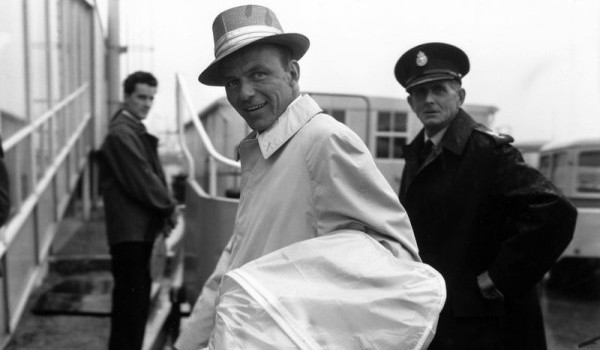
FRIDAYS ARE FOR FRANK: “Roses of Picardy” — Reflecting Upon World War I
The Battle of the Somme—the bloodiest battle in the First World War—lasted from July 1 through mid November of 1916. In the end, over a million young men lay dead or wounded, while the Allied Forces managed to gain a mere six miles of territory.
 “Roses of Picardy” is a British song written in 1916, with lyrics by Frederick Weatherly and music by Haydn Wood. It eventually became one of the most famous songs of the First World War, selling at a rate of 50,000 copies of the sheet music per month, with British soldiers singing it when they enlisted for the Front in France and Flanders.
“Roses of Picardy” is a British song written in 1916, with lyrics by Frederick Weatherly and music by Haydn Wood. It eventually became one of the most famous songs of the First World War, selling at a rate of 50,000 copies of the sheet music per month, with British soldiers singing it when they enlisted for the Front in France and Flanders.
A few months after the Battle of the Somme, American Expeditionary Forces would join the fight when the United States declared war on Germany and her allies on April 6, 1917.
Immediately, Hoboken’s German-owned shipping lines were seized, and the ships docked along the waterfront were commandeered to become troop transports. In a matter of weeks, the piers here in Hoboken were converted to serve as the chief port of embarkation for the American Expeditionary Force. General John J. “Black Jack” Pershing famously boasted that his troops would be in, “Heaven, Hell or Hoboken” by Christmas, 1917.
Sadly, Pershing’s promise turned out to be far too optimistic, and by the end of hostilities on November 11, 1918, nearly 2 million U.S. “Doughboys” would have passed through Hoboken, en route to the Western Front. Far fewer would return, as the AEF sustained 53,402 battle deaths, 63,114 non-combat deaths (including the devastating influenza pandemic of 1918) and 204,000 fighting men wounded.
Here’s Hoboken’s own Frank Sinatra — who was six months old when the Battle of the Somme commenced — singing “Roses of Picardy,” recorded in London in 1962. Following the war, the song was used as a way to help soldiers who were suffering from shell-shock regain their powers of speech…

 Previous Article
Previous Article Next Article
Next Article FRIDAYS ARE FOR FRANK: “My Kind Of Town” (Jeopardy! Edition)
FRIDAYS ARE FOR FRANK: “My Kind Of Town” (Jeopardy! Edition)  FRIDAYS ARE FOR FRANK: Cannonball Run II (feat. Burt Reynolds)
FRIDAYS ARE FOR FRANK: Cannonball Run II (feat. Burt Reynolds)  MOLFETTA DAY: Hoboken’s Società Madonna Dei Martiri
MOLFETTA DAY: Hoboken’s Società Madonna Dei Martiri  FRIDAYS ARE FOR FRANK: “Swinging On A Star” | Sinatra Memorial Returns to 415 Monroe Street
FRIDAYS ARE FOR FRANK: “Swinging On A Star” | Sinatra Memorial Returns to 415 Monroe Street  Hoboken Takes A Swing at NJ Transit Over Plans On The Waterfront
Hoboken Takes A Swing at NJ Transit Over Plans On The Waterfront  FRIDAYS ARE FOR FRANK: “High Hopes” (March Madness Edition)
FRIDAYS ARE FOR FRANK: “High Hopes” (March Madness Edition)  FRIDAYS ARE FOR FRANK: “Imagination” (feat. Tommy Dorsey Orchestra)
FRIDAYS ARE FOR FRANK: “Imagination” (feat. Tommy Dorsey Orchestra)  FRIDAYS ARE FOR FRANK: “The September of My Years”
FRIDAYS ARE FOR FRANK: “The September of My Years”